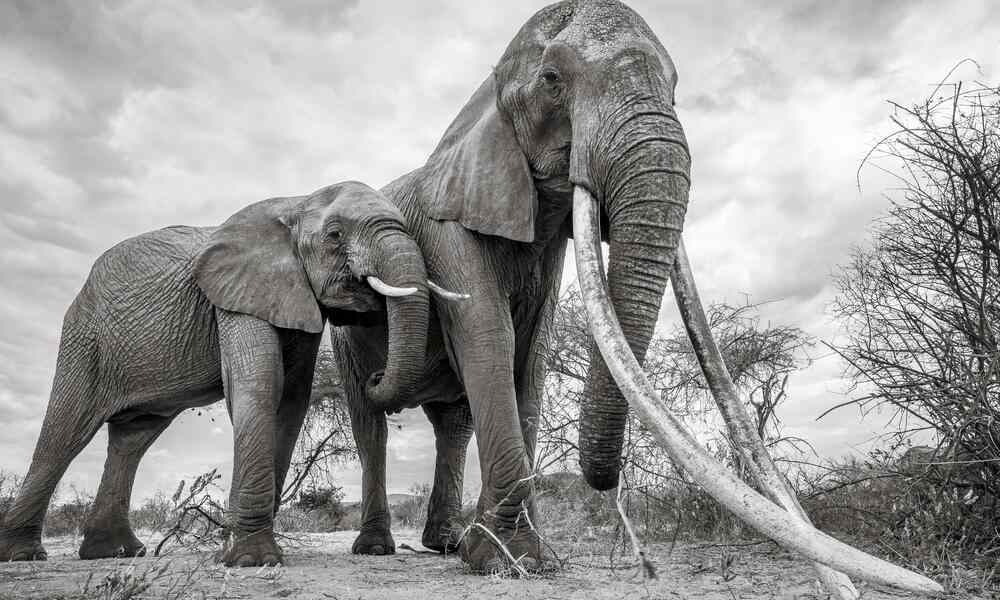Humans have bred animals to maximize traits such as friendliness, sociability and a docile temperament in a process called domestication. Some researchers believe humans and bonobos have gone through a similar process but that they have naturally done it to themselves.
Limor Raviv at the Max Planck Institute for Psycholinguistics in the Netherlands wondered if other species have self-domesticated too. She decided to start with African savannah elephants (Loxodonta africana), a species with which she was already familiar. She and her colleagues looked at how the elephants compared with bonobos (Pan paniscus) and humans on 20 different measures.
They found that all three species display similar behaviors and share certain physical features. Like bonobos and humans, elephants are social, play, have a long childhood and care for the offspring of others in their group.
Wild African elephants’ also share a shortened jawbone – a trait shared by many domesticated animals – and show restraint in aggression toward others.
Next, the researchers looked for commonalities between the genome of domesticated animals and the genome of wild elephants.
By drawing on studies of 261 mammals such as cattle, dogs, cats and horses, they built a list of genes frequently associated with domestication. They then identified 674 genes as having a high likelihood of being passed down from earlier elephant generations.
The team found that 79 of those African elephant genes were associated with domestication in other species, further strengthening the idea that elephants evolved these traits without the direct intervention of people.
This is significant, says Raviv, because elephants and humans are not closely related, suggesting domestication can evolve convergently in multiple branches of the mammal evolutionary tree.
pll/jha/lpn










